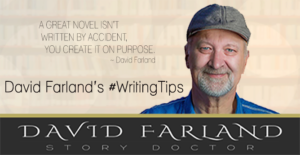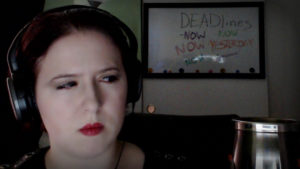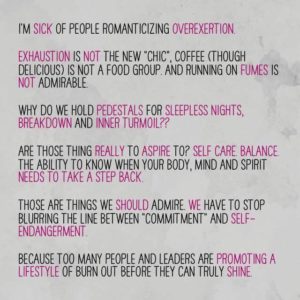Book signings are a lot of fun! They’re fun for the readers, they’re fun for the authors, and they’re fun for the stores hosting them…most of the time. As the event coordinator for an indie bookstore I’ve learned that with book signings, like any public event, there are many things that can go wrong. Most of them are minor and are easily dealt with. Others, like the time an author cancelled at the last minute because they had to attend a relative’s murder trial, are not so little. Whether it’s a minor problem or not, knowing what to do can prevent it from becoming an embarrassing incident for everyone involved.
The first thing to keep in mind is don’t panic. Book signings are organized chaos. Event coordinators (which I’ll refer to as EC for the rest of the post) and event staff are usually really good at mitigating the chaos so all the author has to do is sit back and enjoy their time with their readers. Here’s some of the more common problems and how to deal with them:
Problem: life forces you to cancel.
Illness happens, injuries happen, and deaths in the family are an unfortunate part of life. It’s okay to cancel. Let the EC know as soon as you can. If you live within driving distance or know you’ll be in the area in the near future ask if you can reschedule. After you’ve talked to the EC spread word on social media that the event has been cancelled. Similarly if you’re stuck in traffic and are going to be late, let the EC know and all will be well.
Problem: the store runs out of books.
As far as problems go this one isn’t that bad. Yeah, the fans that aren’t able to buy a signed copy that day will be upset but the situation is out of your control. If you want to appease fans you can offer to send signed bookplates to the store that they can insert into books when they have stock again but I want to emphasize that it’s not your responsibility to rectify the situation. It’s the store’s. Anything you choose to do to make fans happy is good PR for you.
Problem: fans who won’t walk away.
Sometimes a fan is so excited in the moment that they forget that there are people in line behind them. They want to talk to you about all the things. If the EC or a staff member is helping with the line let them usher the chatty person on. If there isn’t but you can discretely signal one, do that. If that’s not an option then politely ask the person to step aside so you can see to the rest of the line. If the person who won’t go away is being rude or doing/saying things that make you uncomfortable/feel unsafe, don’t worry about being polite or discrete. Get a staff member to remove them immediately.
Problem: no one comes.
Sadly despite the store’s and your best efforts there are events where it’s just you and the staff. Don’t take it personally. I’ve seen this happen to NYT bestsellers. (Seriously, I have!) The last thing you want to do is to dink around on your phone or whip out the laptop to write. Say hi to customers that you pass and tell them about your books. You could also start reading your work aloud.
Don’t go to your book signing expecting something to go wrong. Most of the time everything goes smoothly, and as I said at the beginning, everyone has a lot of fun. If it doesn’t, remember that the EC and their staff are there for you. Long before you arrive they’ve been hard at work to make sure that the space is ready, the event has been publicized, and your books are in stock. They’ve got your back. Taking care of you is their job.
Find out more about Kim here: http://www.fictorians.com/the-fictorians/kim-may/



